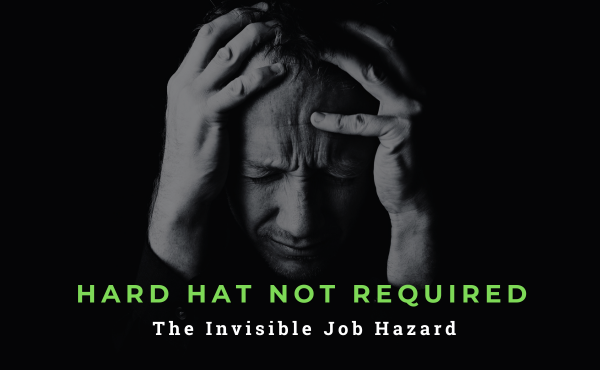Supporting Mental Health in Apprentice Training

Construction work demands physical strength but let us not overlook the significant impact it can have on the mental well-being of apprentices. It's time to highlight this crucial aspect of their well-being and explore why it should be a top priority. The Centers for Disease Control and Prevention found that construction has one of the highest suicide rates by population, with a staggering rate of about five times higher than the general population. This translates to 53 suicides per 100,000 workers. These statistics serve as a wake-up call to the mental health challenges prevalent in our industry.
In this blog, we will delve into the mental toll that construction work can take on apprentices, discuss the implications of unaddressed mental health issues, and present compelling reasons why providing mental health resources and initiatives should be a cornerstone of apprentice training schools.
Building Support Systems: Just as sturdy scaffolding supports a construction structure; apprentice training schools must establish robust support systems for their students. Creating a safe and nurturing environment where apprentices feel comfortable discussing their challenges and seeking help is essential. Mentorship programs, counseling services, or peer support groups can serve as pillars of support. These systems will provide apprentices with the necessary foundation to address their mental health concerns effectively. When apprentices feel supported, they can better manage stress, anxiety, and other mental health issues, ultimately leading to improved well-being and increased productivity.
Raising Awareness: Construction projects often involve high-pressure deadlines, long hours, physically strenuous tasks, and a demanding work environment. These factors can contribute to stress, anxiety, and other mental health challenges. By organizing awareness programs, apprentice training schools can shine a spotlight on mental health, reducing the stigma and encouraging apprentices to seek help when needed. Workshops, guest speakers, and informative resources can empower apprentices with knowledge and open the doors to meaningful conversations. By fostering a culture of understanding and support, we can create an environment where apprentices feel safe and comfortable discussing their mental health concerns.
Providing Access to Resources: Just like a well-equipped toolbox helps us tackle any construction task, apprentice training schools should ensure that apprentices have access to mental health resources. This could include offering counseling services, providing online platforms with mental health resources, and sharing information about local support networks. By making these resources readily available, we equip apprentices with the tools they need to proactively manage their mental well-being. Providing access to mental health resources demonstrates a commitment to the holistic development of apprentices and sets them up for success both personally and professionally.
Prioritizing mental health in apprentice training schools is not just an option; it's a necessity. The high suicide rates in the construction industry serve as a stark reminder of the mental health challenges faced by apprentices. By acknowledging and addressing these challenges, we can create a supportive and resilient construction workforce. When mental health is valued, apprentices can perform at their best, learn effectively, and contribute to a positive and thriving work environment.
Let us commit to building a culture that values mental health, where apprentices can thrive and succeed personally and professionally. By implementing robust support systems, raising awareness, and providing access to mental health resources, we pave the way for a brighter future in the construction industry.








Accurate Screening of Apprentices in Four Steps
A Realistic Job Preview
Start with a brief online video that explains a career in union construction. The video is helping people have the right understanding of :
- What it means to have a career in construction
- What to expect – an honest look at the good and the bad
- What the union expects of t
- What to expect – an honest look at the good and the bad
- What the union expects of them
Candidates Completes APS Success Profile
A 60-min online based test. The assessment evaluates candidates’ aptitude, personality, and cognitive capabilities related to a career in construction.
Your Program Receives Assessment Results Online
Assessment results are returned with easy-to-use “traffic light” indicators (green, yellow, and red) to group applicants by assessment score and mechanical reasoning capability.
Interviews are Held with Behavior Based Questions
Interview is based on a technique that research has shown to be 4x more effective at predicting success than traditional interviews.



